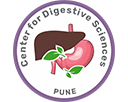What is Hypersplenism?
Hypersplenism is an overactive spleen. Your spleen is a fist-sized organ located behind your stomach and just under your left rib cage. It has two main functions: to store blood and to remove old or damaged blood cells from your bloodstream.
When your spleen’s overactive, or “hyper,” it removes too many blood cells, including healthy ones. Without enough healthy, mature blood cells, your body has a harder time fighting infections and you may become anemic. Anemia occurs when your blood doesn’t have the proper amount of oxygen, due to a low number of red blood cells.

Causes
There are two types of hypersplenism:
- primary, in which there is no known cause
- secondary, in which hypersplenism is related to another disorder
Essentially, any disorder that causes enlargement of the spleen (splenomegaly) can cause hypersplenism. That’s because as your spleen becomes enlarged, it holds more and more blood cells. This includes damaged and healthy blood cells. This stops your healthy blood cells from circulating and allowing your body to perform its functions and fight disease.
Conditions that can lead to an enlarged spleen and, thus, hypersplenism are:
- Chronic liver diseases. These include hepatitis C, which causes inflammation of your liver, and cirrhosis, a liver disease in which scar tissue takes over healthy liver tissue. Cirrhosis caused by consuming too much alcohol as well as nonalcoholic cirrhosis can both cause hypersplenism.
- Infections. This includes malaria, a flu-like illness carried by mosquitos, and tuberculosis, a bacterial lung disease.
- Autoimmune diseases. These conditions, such as lupus and rheumatoid arthritis, cause widespread inflammation.
- Gaucher disease. This inherited disease causes fats to build up in your spleen.
- Cancer. One type of cancer that may cause enlargement is lymphoma, a cancer of your lymphatic system, which includes your spleen.
Symptoms
- You have an enlarged spleen. In some cases, your spleen can become so large that you may feel pain or fullness in the left upper portion of your chest. You may also have no symptoms, although your doctor can feel an enlarged spleen when checking your abdomen.
- You feel abnormal fullness, even after eating a small amount.
- Your level of red blood cells (also called cytopenia) is reduced, as evidenced by a blood test.
- Your likelihood of infections increases due to fewer disease-fighting blood cells circulating in your blood.
- You have anemia, a condition in which you don’t have enough red blood cells or hemoglobin, a protein that carries oxygen in your blood. Symptoms can include headache, weakness, shortness of breath, and feeling cold.
Treatment
Treating hypersplenism involves treating the underlying condition causing it. Those with cirrhosis may benefit from dietary changes. These changes may include avoiding alcohol and using diuretics to flush out excess fluids. Hepatitis C can be treated with antiviral medications. If you have tuberculosis, your doctor will prescribe antibiotics. In some cases, your doctor may recommend radiation to shrink your spleen. In one study, low-dose radiation reduced the size of the spleen in 78 percent of participants and improved anemia in another 75 percent. In severe cases of hypersplenism, removal of the spleen (called a splenectomy) may be necessary. In many cases this can be done laparoscopically, which involves passing a lighted instrument through small incisions to remove your spleen.
Book Your Appointment Today
Book your appointment with Dr. Ujwal Zambare he is having 12 years of experience in Gastro-intestinal surgery, oncology, minimally invasive surgery and Liver, Pancreas, Biliary tract surgery.

Dr. Ujwal Zambare
MBBS, MS (General Surgery), DNB (Gastrointestinal Surgery)
Fellowship in Minimal Access Surgery
Copyright © 2021. Dr. Ujwal Zambare – Liver, Pancreas, Biliary Tract Surgery Specialist in Pune. | All Rights Reserved.
All Text and Images is for information of Patients and Public and doesn’t replace medical practitioners advice. Visit doctor for medical advice.



